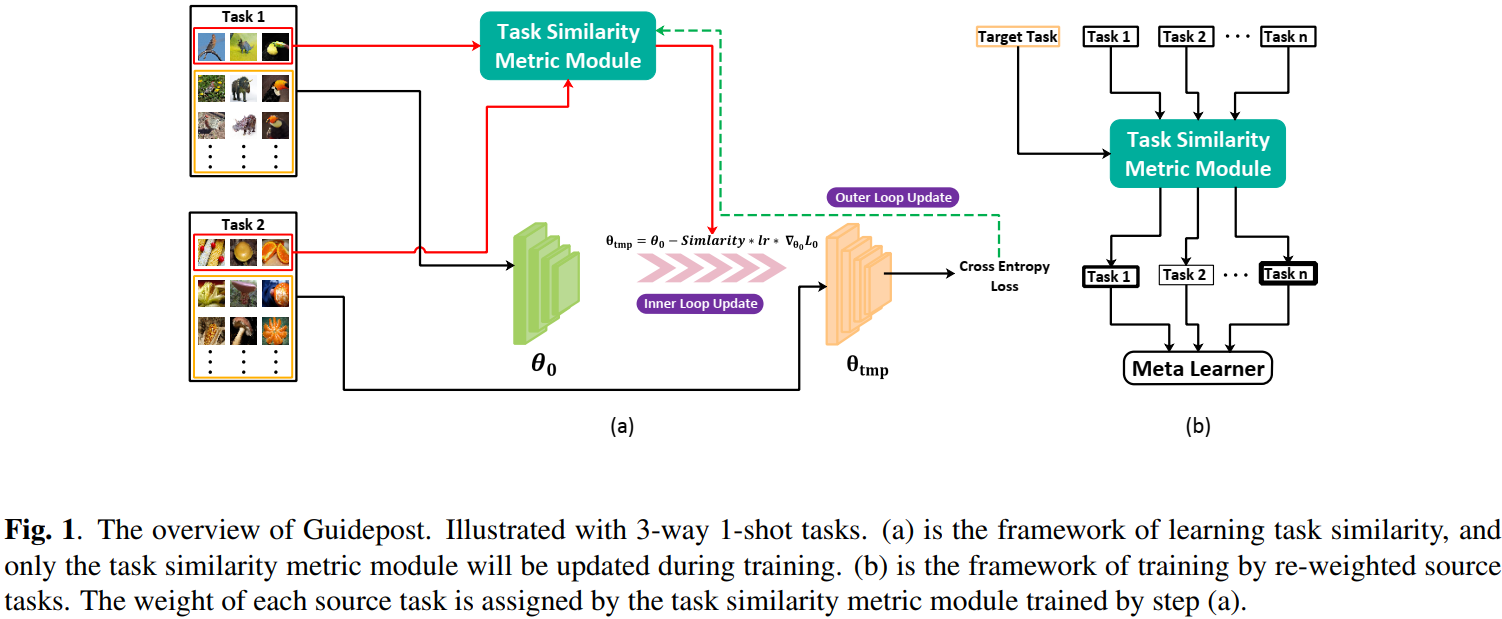Abstract
Despite significant improvements in recent years, few-shot learning (FSL) still faces two critical challenges. First, most of the FSL solutions in the training phase rely on exploiting auxiliary tasks, but target tasks are barely used. Second, current benchmarks sample numerous target tasks each with only N-way C-shot query set in the evaluation phase, which is out of touch with the real scenarios. To cope with these problems, we propose Guidepost, a target-oriented FSL method that can implicitly learn task similarities using a task-level learn-tolearn mechanism and then re-weight auxiliary tasks. In addition, we propose a new FSL benchmark to satisfy the realistic needs and fit our target-oriented property, and mainstream FSL methods are struggling under this new experimental setting. Extensive experiments demonstrate that Guidepost improves two classical few-shot learners, i.e., MAML and ProtoNet, and one state-of-the-art few-shot learner, i.e., RENet on several FSL image datasets. We also implement Guidepost as a domain adaptor to realize high accuracy wireless sensing on our collected WiFi-based human activity recognition dataset.
Author
Zhipeng Zhou, Wei Gong, Haoquan Zhou
Publication
IEEE ICME (submitted)
Keywords
Few-shot learning

